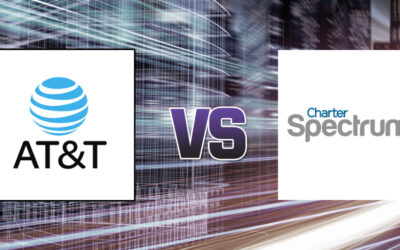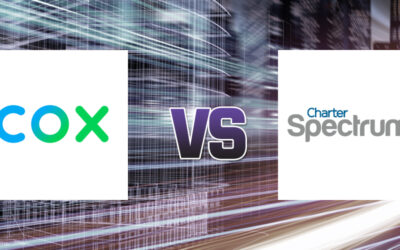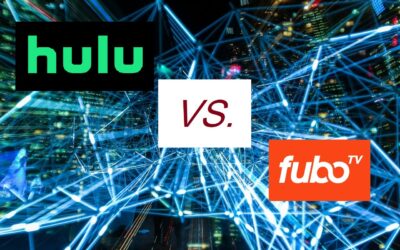When you think of high-speed internet, Xfinity and AT&T will no doubt come to mind. Each of these mega corporations offers coverage throughout the US, and, depending on where you live, you may even have a chance to snag a fiber connection. Even better, if you’re interested in other services, both companies offer killer bundles that can help you shave dollars and cents off of your monthly bills. But, in the broadband battle, who will win? Xfinity and AT&T put on their gloves and duke it out below.
Best Pricing, Contracts and Bundles: AT&T (For fewer added costs for top-tier service)
Fastest Internet Speeds & Reliability: Xfinity (for 2-gig speeds in some areas)
Local Availability & Coverage: AT&T (For rural availability)
Bonus Features & Add-Ons: Tie (AT&T offers truly unlimited while Xfinity provides streaming perks)
|
|
AT&T vs Xfinity: Pricing, Contracts and Bundles
Both Xfinity and AT&T offer competitive pricing. You’ll want to keep in mind, however, that each provider offers different specials and promotions by region. Unfortunately, each also charges extra for equipment, so no matter which you choose, do confirm what your cost is beyond your monthly fee. With AT&T, it’s a flat equipment fee no matter which service you have. Xfinity allows you to keep your own equipment; however, you’ll have to add a gateway for an extra $14-$25 per month for benefits, such as whole-home coverage and unlimited data.
If you are looking to try before you buy, Xfinity offers prepaid internet service for a little less than $50. However, you are limited to 50 Mbps speeds, and you’ll have to buy the modem. AT&T’s 500 Mbps service is about the same price but requires a contract. At this pricing level, AT&T is a better deal, but only if you intend to keep service for an entire contract term.
AT&T vs Xfinity: Internet Speed & Reliability
Both companies offer gig plus service, but, right off the bat, Xfinity throws a fast punch with a mind-blowing two-gig, professional-grade internet available in some markets. With 2000 Mbps, fully-connected homes can use unlimited devices and the kids will never fight over bandwidth when it’s time for online gameplay.
AT&T’s one-gig fiber connection is also lightning-fast and boasts ultra-low lag, which is great for pro-level gamers. Something else to consider here is that AT&T offers its Wi-Fi 6 Gateway at no extra cost.
AT&T vs Xfinity: Local Availability
Because both providers are major players in the internet game, availability changes often. Fortunately, no matter where you live, you likely have access to one – or both – companies. Of special interest to those living out in the country, AT&T offers internet that utilizes a dedicated outdoor antenna, although 10 Mbps is about the fastest available in rural areas.
Take a look at each map below to see what’s available in your area. You’ll also have an opportunity to browse deals specific to your location.
AT&T vs Xfinity: Unlimited Data & Other Features
Unlimited data is, fortunately, becoming more popular these days as it grows less expensive to operate the technology. But, out of the two, AT&T is the only one that boasts unlimited on its most popular plans, which are 300, 500, and 1000 Mbps connections. Other features available with AT&T include a special security suite and, for top-tier subscribers, free HBO Max.
This does not mean that Xfinity users will be left with a ton of overages each month. Depending on usage, Xfinity customers may never even meet their data. But, for those that do want unlimited, they will have to add the xFi Complete Gateway, which tacks an extra $25 per month onto the bill. Xfinity does offer its Flex 4K Streaming TV service for free with an internet plan.
AT&T vs Xfinity: Which is Better Overall?
Ultimately, there’s no loser when it comes to the internet from either company unless you live way out in the country, and then AT&T is one of your only choices. For everything up to a gig, both companies have you covered. Xfinity does take the edge with two-gig speeds, but it’s easily three to four times the cost of “standard” top-tier service. The bottom line: see what’s available in your area and ask about added costs, such as equipment rental fees, before you commit.
|
|
FAQ:
What is the best internet for streaming?
That depends on how many devices and the types of streaming you do. 100 to 500 Mbps will work for most users, even if you’re streaming TV and gaming. 1000 Mbps is ideal if you consistently use multiple devices at the same time while streaming and uploading.
Where do both providers offer coverage?
Xfinity and AT&T both offer coverage throughout the US, although neither are in all cities and states. If you’re trying to choose between the two, you likely live in an overlap area and, for the most part, can expect great service.
Is it cheaper to bundle television and other services with internet?
Yes, in most cases. Xfinity and AT&T both offer a multitude of services, including television and cellular. If you’re willing to sign a contract, you can almost always get a great deal for 12 to 24 months.






